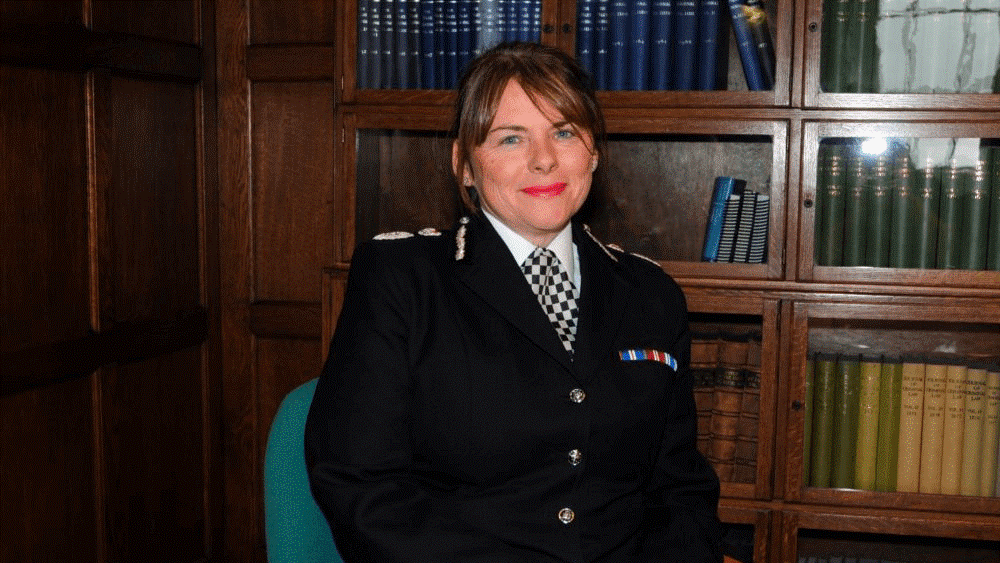Chief Constable Michelle Skeer
Just do it and you will not be disappointed. It's an amazing career, filled with opportunities.

Chief Constable Michelle Skeer, who received the Queens Policing Medal (QPM) for her distinguished service in 2017, has been a member of the Cumbria Constabulary for over 30 years. We spoke to her about her experience in policing and ask what advice she’d give to women thinking about applying.
What made you want to join the police?
I wanted a career that was exciting, challenging, different every day and ultimately rewarding with a clear structure for development.
What do you love most about your job?
The people first and foremost, I have excellent officers and staff who work incredibly hard to deliver an outstanding service to the communities we serve. They are brave and committed. The job is challenging but hugely rewarding where you can see the positive impact you are having on people’s lives. You are there to give help and support to the public when they need you most, which can be incredibly humbling.
Do you have any key advice for women thinking of applying to join the police?
Just do it and you will not be disappointed. It’s an amazing career, filled with opportunities and different roles, so never a dull moment. Look into your local force via their website, it’s a rich source of information and they’ll be able to signpost you to different support groups or positive action teams to help you with your application.
What would you say are the main barriers that hold women back from applying to join the police?
I think in the past policing has been seen as a male dominated and a potentially macho environment. Some of those perceptions may still exist. However, I would say to anyone thinking of applying, policing is a career for all, with lots of different skills, abilities and backgrounds.
Personal safety on the job can be a concern for people – what would you say to reassure them?
Policing provides excellent safety training as well as personal safety equipment which is designed to help keep you safe. Colleagues work together as a team to minimise incidents of personal safety. Safety of officers and staff is the number one priority for Chief Officer Teams.
We know that some women worry about passing the fitness test. What advice would you give to anybody preparing for it?
Some find it easier than others but if you’re not a natural runner, it’s planning and preparing as early as possible. I would also suggest buddying up with someone to practice for the fitness test. Many forces will provide additional support to help individuals prepare – all you have to do is ask! I believe the fitness test is very doable. Practice makes perfect!
Do you think a police career can be family-friendly?
Yes, I do. I managed to have a career, raise three children and they have all turned out okay! Sometimes you must ask for flexibility and support which can usually be accommodated. The pandemic has demonstrated how agile and flexible we can be, it just needs a bit of thinking through.
Any advice you can give to women trying to juggle parenting and shift work?
It can be tricky but not insurmountable. You’ll need a support network around you, and the ability to ask for some flexibility through line managers. Lots are parents themselves so there is a much better understanding now than in the ‘90s when I joined.
Do you think women get the same opportunities to progress in policing as male officers?
Yes, I firmly believe they do. You just have to go for it and seize the opportunities as they arise.
What support exists for women in policing?
All forces have Women’s Networks and I would encourage you to join as it provides support and advice. They do some brilliant work within forces which benefit both female and male colleagues. Each force also has Occupational Health Units who can help. I'm President of the British Association of Women in Policing and we are constantly raising issues relating to female colleagues nationally and you can link in with us through our website or email.
